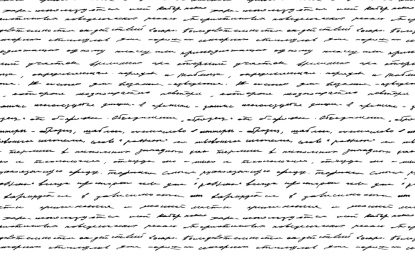
Holographic Horrors
1 Aug, 2019//Posted by : admin//Category : Uncategorized
We live in a land where the spirit of “can do” and “do it yourself” is a tradition. I suppose this stems from the pioneer days where folks out on the lone prairie had to fix their own wagon wheels and construct living and sleeping quarters. I must be missing that gene because I always turn to my oral surgeon for tooth extractions and a good plumber to put in that garbage disposal. I just figure that if I were to attempt such procedures myself, there would probably be unintended consequences.
This brings me to the topic of holographic instruments, usually wills, but includes any writing that is self authored by the testator with the intent to transfer his or her assets upon death. It amazes me that so many otherwise intelligent folks think they have the expertise to effectively plan for their estate disposition when they are not around to steer the wheel.
The California Probate Code provides that a holographic will must be entirely written, dated and signed in the testator’s own handwriting to be admitted to probate. That requirement has become more flexible, but it is just the first step, and it can be a slippery one. As you can imagine, contests of such documents by displeased heirs are commonly made, with allegations of forgery, undue influence, incompetence, duress, fraud, etc. These allegations, and any response thereto by the proponent of the holographic instrument, can take months, even years, to sort out, with much in the way of attorney fees, expert witness expenses, court costs, and the like. Howard Hughes immediately comes to mind.
Even if all the heirs and beneficiaries of such DIY estate plans are convinced the document is valid and authentically written by their deceased loved one, the next step is to figure out what it means, or even says. It is not unusual for counsel to ask the court for an interpretation and instructions of documents that are ambiguous, confusing, illegible, and generally inscrutable. Testators who never read anything more complex than traffic signs will undertake authorship of documents that can escape the skills of some licensed scriveners. Even attorneys that have been practicing in the area of estate planning for years will sometimes make mistakes of construction where a transfer of assets can turn on the difference between the words “among” and “between”, “either” and “or”, and the endless variations of vocabulary, syntax, dialect, and grammar that exist in our population. Believe it or not, some people die without knowing whether they are legally married, or not, or whether that fact has any significance in their testamentary dispositions.
I have seen holographic instruments propounded by the heirs of all classes and ethnic backgrounds. In many cases, the estates involve millions of dollars. One wonders why a wealthy DIY testator did not incur the expense of a professionally drafted estate plan. Of course, the reasons vary, such as a belief that there really is nothing to this legal document drafting business that requires a trained attorney. It may be that they just dislike attorneys because of some bad experience in the halls of justice. I suspect that many such testators just want to save the money. So, instead they expose their heirs to the possible expense and acrimony of prolonged litigation.
Of course, I have seen exorbitant fees charged by estate planners for what are rather routine, uncomplicated, wills and/or trusts. However, there is no disadvantage to shopping around for prices. Most attorneys are fair, and do a much more complete and intelligible job than one can do on their own, and do not charge either an arm or a leg to do so. Having a trained attorney prepare important documents will be more advantageous than doing it yourself, or looking for one size fits all forms on the internet.
